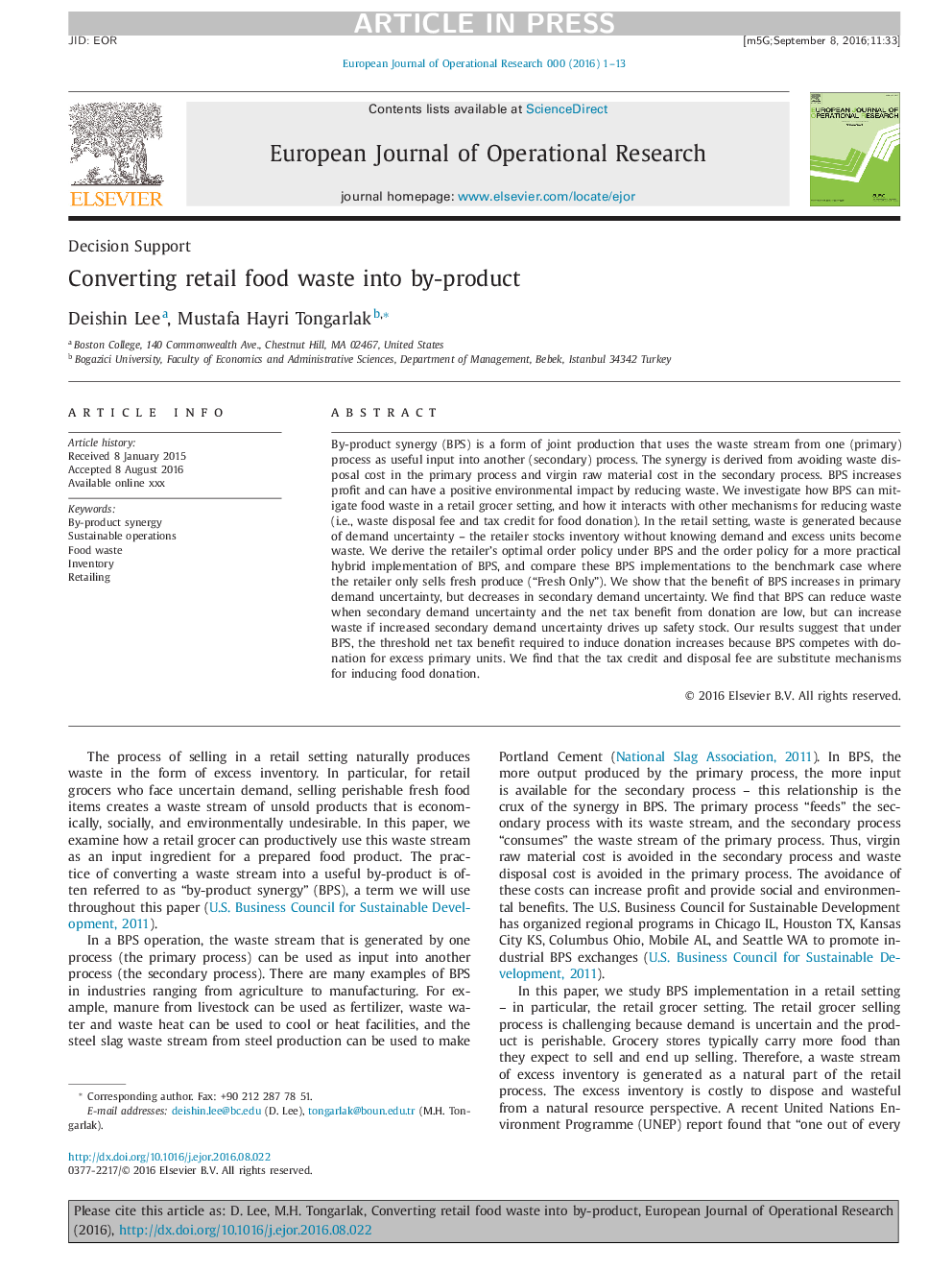ترجمه فارسی عنوان مقاله
تبدیل زباله های خرده فروشی به محصولات جانبی
عنوان انگلیسی
Converting retail food waste into by-product
| کد مقاله | سال انتشار | تعداد صفحات مقاله انگلیسی |
|---|---|---|
| 142550 | 2017 | 13 صفحه PDF |
منبع

Publisher : Elsevier - Science Direct (الزویر - ساینس دایرکت)
Journal : European Journal of Operational Research, Volume 257, Issue 3, 16 March 2017, Pages 944-956
ترجمه کلمات کلیدی
همکاری با محصول، عملیات پایدار، زباله های مواد غذایی، فهرست، خرده فروشی،
کلمات کلیدی انگلیسی
By-product synergy; Sustainable operations; Food waste; Inventory; Retailing;

